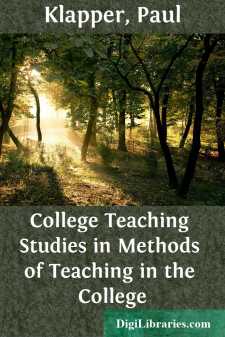Categories
- Antiques & Collectibles 13
- Architecture 36
- Art 48
- Bibles 22
- Biography & Autobiography 813
- Body, Mind & Spirit 142
- Business & Economics 28
- Children's Books 17
- Children's Fiction 14
- Computers 4
- Cooking 94
- Crafts & Hobbies 4
- Drama 346
- Education 46
- Family & Relationships 57
- Fiction 11829
- Games 19
- Gardening 17
- Health & Fitness 34
- History 1377
- House & Home 1
- Humor 147
- Juvenile Fiction 1873
- Juvenile Nonfiction 202
- Language Arts & Disciplines 88
- Law 16
- Literary Collections 686
- Literary Criticism 179
- Mathematics 13
- Medical 41
- Music 40
- Nature 179
- Non-Classifiable 1768
- Performing Arts 7
- Periodicals 1453
- Philosophy 64
- Photography 2
- Poetry 896
- Political Science 203
- Psychology 42
- Reference 154
- Religion 513
- Science 126
- Self-Help 84
- Social Science 81
- Sports & Recreation 34
- Study Aids 3
- Technology & Engineering 59
- Transportation 23
- Travel 463
- True Crime 29
Sort by:
by:
Marion Harland
CHAPTER I. SISTERLY DISCOURSE WITH JOHN'S WIFE CONCERNING JOHN. John is not John until he is married. He assumes the sobriquet at the altar as truly as his bride takes the title of "Mistress" or "Madame." Once taken, the name is generic, inalienable and untransferable. Yet, as few men marry until they have attained legal majority, it follows that your John—my John—every...
more...
by:
William Evans
I. HIS EXISTENCE. 1. TAKEN FOR GRANTED BY THE SCRIPTURE WRITERS: It does not seem to have occurred to any of the writers of either the Old or the New Testaments to attempt to prove or to argue for the existence of God. Everywhere and at all times it is a fact taken for granted. "A God capable of proof would be no God at all" (Jacobi). He is the self-existent One (Exod. 3:14) and the Source of...
more...
CHAPTER I INTRODUCTION Formerly it was the custom for gardeners to invest their labors and achievements with a mystery and secrecy which might well have discouraged any amateur from trespassing upon such difficult ground. "Trade secrets" in either flower or vegetable growing were acquired by the apprentice only through practice and observation, and in turn jealously guarded by him until passed...
more...
Broom. To dream of brooms, denotes thrift and rapid improvement in your fortune, if the brooms are new. If they are seen in use, you will lose in speculation. For a woman to lose a broom, foretells that she will prove a disagreeable and slovenly wife and housekeeper. Broth. Broth denotes the sincerity of friends. They will uphold you in all instances. If you need pecuniary aid it will be forthcoming....
more...
by:
John Dewey
The Child and the Curriculum Profound differences in theory are never gratuitous or invented. They grow out of conflicting elements in a genuine problem—a problem which is genuine just because the elements, taken as they stand, are conflicting. Any significant problem involves conditions that for the moment contradict each other. Solution comes only by getting away from the meaning of terms that is...
more...
by:
Anonymous
PREFACE I began these memoirs when about twenty-five years old, having from youth kept a diary of some sort, which perhaps from habit made me think of recording my inner and secret life. When I began it, I had scarcely read a baudy book, none of which excepting "Fanny Hill" appeared to me to be truthful, that did, and it does so still; the others telling of recherche eroticisms, or of...
more...
CHAPTER I. STATESMANSHIP IN ITS RELATION TO WAR. Under this head are included those considerations from which a statesman concludes whether a war is proper, opportune, or indispensable, and determines the various operations necessary to attain the object of the war. A government goes to war,— To reclaim certain rights or to defend them; To protect and maintain the great interests of the state, as...
more...
FOREWORD. The first volumes of the "American Luther" we selected for publication were his best commentaries, then eight volumes of his Gospel and Epistle sermons and one volume of his best catechetical writings. These rich evangelical works introduced us to the real Luther, not the polemical, but the Gospel Luther. They contain the leaven of the faith, life and spirit of Protestantism. We now...
more...
INTRODUCTORY. The essays which compose this volume deal chiefly with a variety of subjects to which every physician must have given more or less thought. Some of them touch on matters concerning the mutual relation of physician and patient, but are meant to interest and instruct the laity rather than the medical attendant. The larger number have from their nature a closer relation to the needs of women...
more...
by:
Paul Klapper
PREFACE The student of general problems of education or of elementary education finds an extensive literature of varying worth. In the last decade our secondary schools have undergone radical reorganization and have assumed new functions. A rich literature on every phase of the high school is rapidly developing to keep pace with the needs and the progress of secondary education. The literature on...
more...











